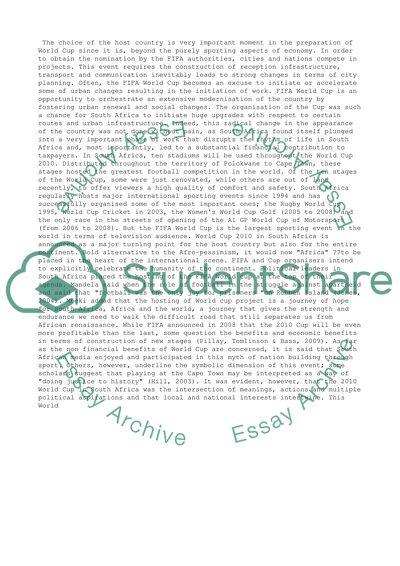Cite this document
(“FIFA World Cup 2010 in South Africa as a business event Essay”, n.d.)
Retrieved de https://studentshare.org/business/1391632-evaluating-success-against-non-financial-criteria
Retrieved de https://studentshare.org/business/1391632-evaluating-success-against-non-financial-criteria
(FIFA World Cup 2010 in South Africa As a Business Event Essay)
https://studentshare.org/business/1391632-evaluating-success-against-non-financial-criteria.
https://studentshare.org/business/1391632-evaluating-success-against-non-financial-criteria.
“FIFA World Cup 2010 in South Africa As a Business Event Essay”, n.d. https://studentshare.org/business/1391632-evaluating-success-against-non-financial-criteria.


